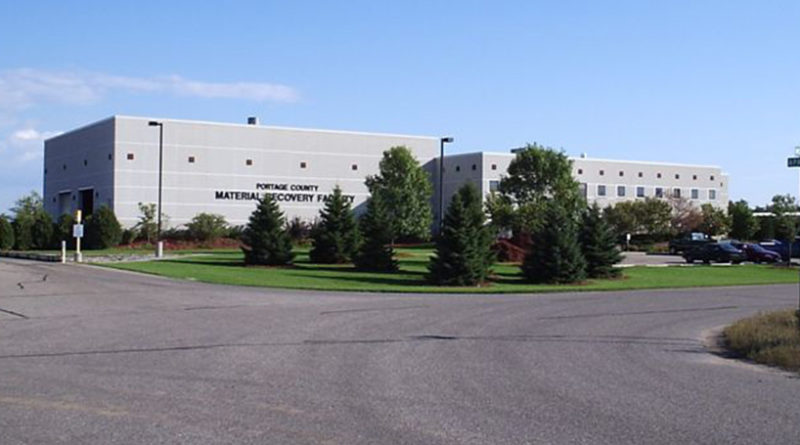Column: How to recycle plastic film and bags
By Amanda Haffele
Plastic film and bags are a problem at landfills, transfer facilities, and material recovery facilities where recyclables are sorted.
They blow around creating litter and get stuck causing problems with machinery and other rotating gears. But plastic film and bags are also very valuable. They are needed (and wanted) by manufacturers to make products such as composite boards, car parts, new plastic film and bags, and other items. The film collected here in Portage County is mostly recycled by companies that make composite deck boards.
What can be recycled?
Residents and businesses can recycle clean and dry: plastic wrap around napkins, toilet paper, and paper towel rolls, bread, and produce bags, newspaper bags, dry cleaning bags, plastic wrap around cases of water or other beverages, air pillows, and bubble wrap, food storage bags, retail bags, pallet wrap or stretch wrap, bags around clothing, film around electronic components, and a few other items. Visit plasticfilmrecycling.org for a complete list.
What can’t be recycled?
- Any film or bag that tears or rips in a straight line cannot be recycled. This would include candy wrappers and crinkly cellophane film around snack cases or packaged snacks like chips or crackers. Bags that hold frozen foods or prewashed salad mixes are not recyclable either. This film is a multi-laminate, meaning there is more than one layer (and type) of film to keep materials fresh.
- Multi-laminates are not compatible with the plastic film and bags these companies are collecting and recycling.
- Biodegradable or compostable films, salt bags, or animal food bags are not recyclable.
- Biodegradable or compostable films cause weak spots in outdoor objects (furniture or deck boards) that have been made out of plastic films and bags.
Where can I recycle this material?
Do not put plastic film or bags in with curbside recycling as these materials will only be recycled through drop-off locations. Here in Portage County that would include both Metro Markets, Wal-Mart, Kohl’s, Festival Foods, and Target.
Most of these facilities are unaware that they’re able to accept more than plastic bags. I’m here to verify that all these locations can accept more than just plastic bags. Years ago, I did some freelance work with the Wrap Recycling Action Program. One of my duties was working behind the scenes verifying that the facilities listed on their website, bagandfilmrecycling.org, (which these are) recycle plastic films and bags.
Why do things need to be dry?
I cannot stress enough that plastic film and bags need to be dry—bone dry. Companies that recycle plastic film and bags into composite lumber use a 1:1 ratio of plastic film and sawdust to make their products. If the film is too wet, they have to raise the temperature of their furnaces, if the furnaces get too hot it burns off the sawdust, ruining the end product. Also, moisture will cause the plastic film to mold. Mold smells horrible and could cause health issues for workers while the bales are being stored.
How clean does the material need to be?
Bags should be free of receipts, crumbs, and other food debris like mustard or mayonnaise. A small amount of dried food crumbs is okay as well as packaging tape or stickers. But still, try to keep these items at a minimum.
Amanda Haffele is the Portage County Solid Waste Director. She works at the Material Recovery Facility, 600 Moore Rd., Plover, and can be reached at 715.343.6297 or [email protected].


